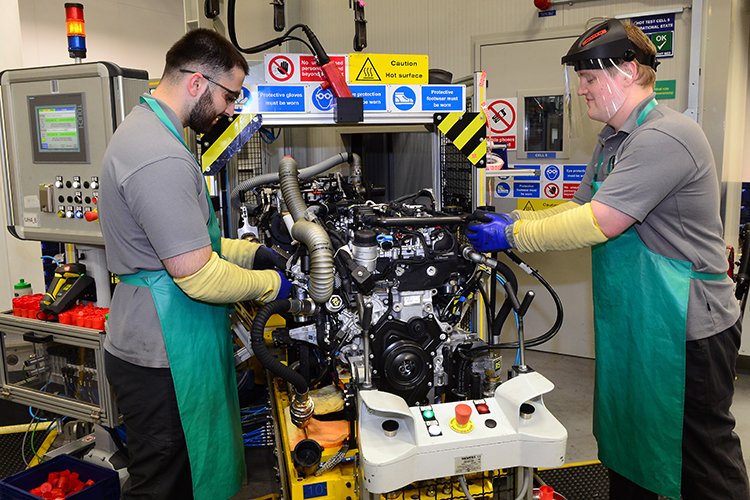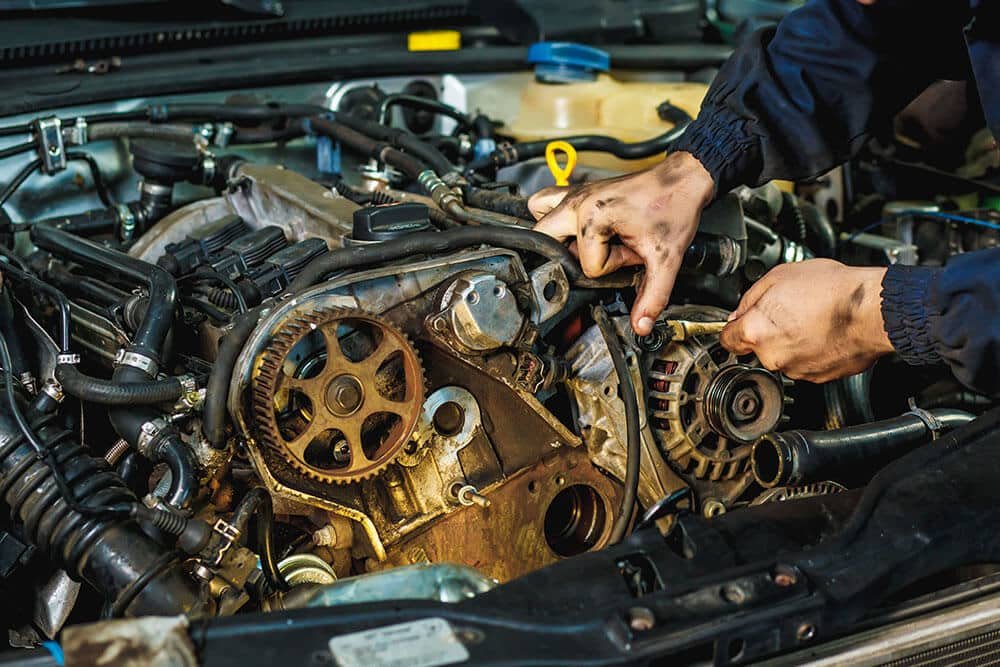Learn about engine overhaul: benefits, process, costs, and choosing the right service. Get clear insights to keep your engine in top shape.
If your car’s engine is not running like before, maybe it needs an engine overhaul. An overhaul can make your engine work better and last longer. In this article, we will talk about why engine overhaul is important and how it can help your car. We’ll also cover the steps involved in an overhaul, from preparation to reassembly, and compare costs with replacing the engine. Plus, we’ll guide you on choosing the right service provider and handling any problems that come up. Read on to learn how to keep your engine in top condition!
Understanding Engine Overhaul
Engine overhaul is a crucial process for maintaining and restoring a vehicle’s engine to its optimal condition. But what exactly is an engine overhaul? In simple terms, it involves disassembling, inspecting, repairing, and reassembling an engine to improve its performance and extend its lifespan.

Unlike an engine replacement, which involves swapping out the entire engine, an overhaul focuses on refurbishing the existing one. This process is often necessary when an engine shows signs of wear and tear or performance issues.
Why is Engine Overhaul Necessary?
Engines, like all mechanical components, experience wear over time. Common reasons for needing an engine overhaul include reduced power, increased oil consumption, and excessive engine noise. By overhauling the engine, you address these issues and restore the engine’s efficiency. Key indicators that your engine might need an overhaul are:
- Unusual noises from the engine
- Increased oil consumption
- Decreased engine performance
Key Benefits of Engine Overhaul
Improved Engine Performance
One of the primary benefits of an engine overhaul is enhanced performance. An engine overhaul can rejuvenate an aging engine, making it run smoother and more efficiently. For instance, replacing worn-out components like pistons and bearings can restore power and fuel efficiency. Real-life examples and case studies often show that vehicles experience significant improvements in performance post-overhaul.

Extended Engine Lifespan
Another significant advantage is the extended lifespan of the engine. Regular maintenance and timely overhauls can significantly prolong the life of your engine. For comparison, an engine that is overhauled typically lasts much longer than one that is not maintained.
Engine Overhaul Process
Preparation and Assessment
Before starting an engine overhaul, a thorough assessment is essential. This involves an initial inspection and diagnostics to identify the extent of wear and damage. Planning and cost estimation follow this assessment, ensuring that all potential issues are addressed.
Disassembly and Inspection
During the disassembly phase, the engine is carefully taken apart. Key components, such as the cylinder head, pistons, and crankshaft, are inspected for damage and wear. Common issues found during this phase include worn-out bearings and damaged gaskets.
Rebuilding and Reassembly
Once inspection is complete, the rebuilding process begins. This step involves replacing or repairing damaged components and reassembling the engine. Quality checks and testing are performed to ensure that the engine functions correctly before it is put back into use.

Post-Overhaul Maintenance
After the overhaul, regular maintenance is crucial. Adhering to a recommended maintenance schedule helps maintain the engine’s performance. Simple tips like regular oil changes and timely inspections can keep your engine running smoothly.
Costs and Considerations
Average Costs of Engine Overhaul
The cost of an engine overhaul can vary widely. On average, you might expect to pay between $1,500 and $4,000, depending on the extent of the work needed and the type of vehicle. Factors influencing the cost include the make and model of your car, as well as the specific parts that need replacement.
Cost Comparison: Overhaul vs. Replacement
When deciding between an overhaul and a replacement, consider both financial and practical aspects. While an overhaul is often less expensive than a full engine replacement, it’s important to weigh the long-term benefits and potential future repairs.
Choosing the Right Service Provider
Finding a Qualified Mechanic
Choosing a qualified mechanic is essential for a successful engine overhaul. Look for credentials such as ASE certification and ask potential mechanics about their experience with engine overhauls. Quality service providers will also offer detailed estimates and a clear explanation of the work involved.
Evaluating Repair Shops
When selecting a repair shop, consider factors such as location, reputation, and customer reviews. A good shop will provide transparent pricing and a detailed explanation of the services offered.

Common Challenges and Solutions
Typical Problems Encountered
Engine overhauls can sometimes encounter problems, such as unexpected component failures or additional repairs needed. Addressing these issues promptly can prevent further damage and ensure a successful overhaul.
Dealing with Unexpected Costs
It’s not uncommon for additional costs to arise during an engine overhaul. To manage these expenses, it’s wise to budget for potential overruns and discuss any concerns with your mechanic before starting the work.
Frequently Asked Questions
-
What are the signs that my engine needs an overhaul?
- Common signs include unusual noises, increased oil consumption, and decreased performance.
-
How long does an engine overhaul take?
- The process typically takes 1-2 weeks, depending on the complexity of the work.
-
What parts are typically replaced during an overhaul?
- Parts often replaced include pistons, bearings, and gaskets.
-
Is engine overhaul worth the investment?
- Yes, especially if it extends the engine’s life and improves performance compared to the cost of replacement.
By understanding the process and benefits of an engine overhaul, car owners can make informed decisions about maintaining their vehicles. Regular overhauls and proper maintenance not only enhance engine performance but also extend the overall life of the vehicle.
An engine overhaul can significantly boost your car’s performance and extend its life. By understanding the process, benefits, and costs, you can make an informed decision about maintaining your vehicle. If you found this article helpful, please leave a comment, share it with others, or explore more content on our site for additional insights. Keep your engine running smoothly and efficiently!
FAQs about Engine Overhaul
What is an Engine Overhaul?
An engine overhaul involves disassembling and inspecting an engine to repair or replace worn-out components. This process aims to restore engine performance and extend its lifespan. During an overhaul, various parts such as the pistons, crankshaft, and valves are examined and repaired or replaced as needed.
How Do I Know if My Engine Needs an Overhaul?
Signs that your engine may need an overhaul include reduced power, increased oil consumption, and unusual noises such as knocking or ticking. Additionally, if your engine is consuming more fuel than usual or emitting excessive smoke, these could be indicators that an overhaul is necessary.

How Much Does an Engine Overhaul Cost?
The cost of an engine overhaul can vary widely based on factors such as the make and model of your vehicle and the extent of the repairs needed. On average, an engine overhaul may cost between $1,500 and $4,000. It’s important to get a detailed estimate from a mechanic to understand the specific costs involved for your vehicle.
How Long Does an Engine Overhaul Take?
An engine overhaul typically takes about one to two weeks. The exact time can depend on the complexity of the overhaul, the availability of parts, and the workload of the repair shop. It’s a good idea to discuss the timeline with your mechanic to get a more accurate estimate.
Can I Drive My Car While Waiting for an Overhaul?
It is generally not recommended to drive your car if you suspect it needs an overhaul. Continuing to drive with a malfunctioning engine can lead to further damage and potentially increase the cost of repairs. It’s best to have the engine assessed and overhauled as soon as possible to avoid additional problems.